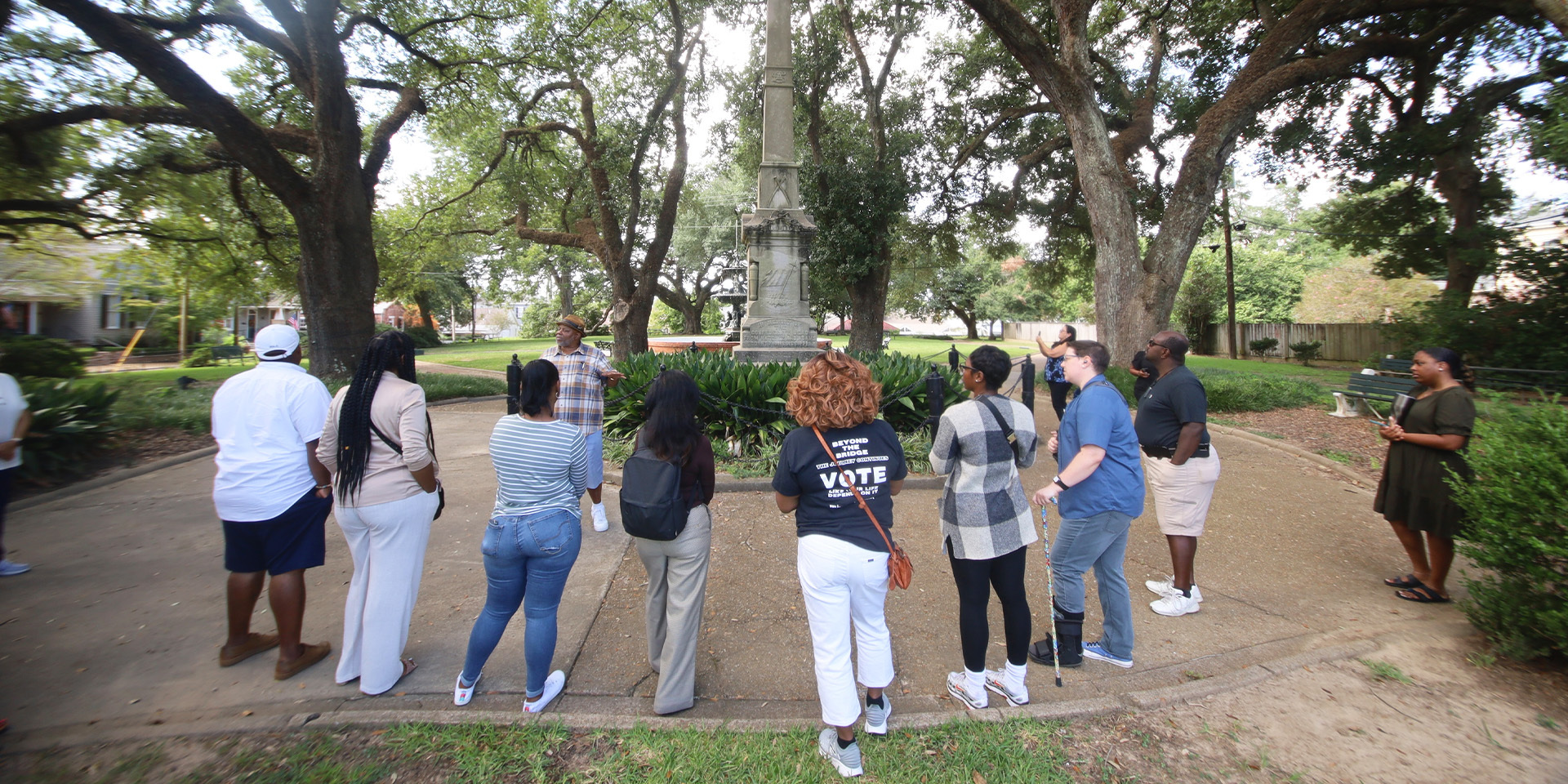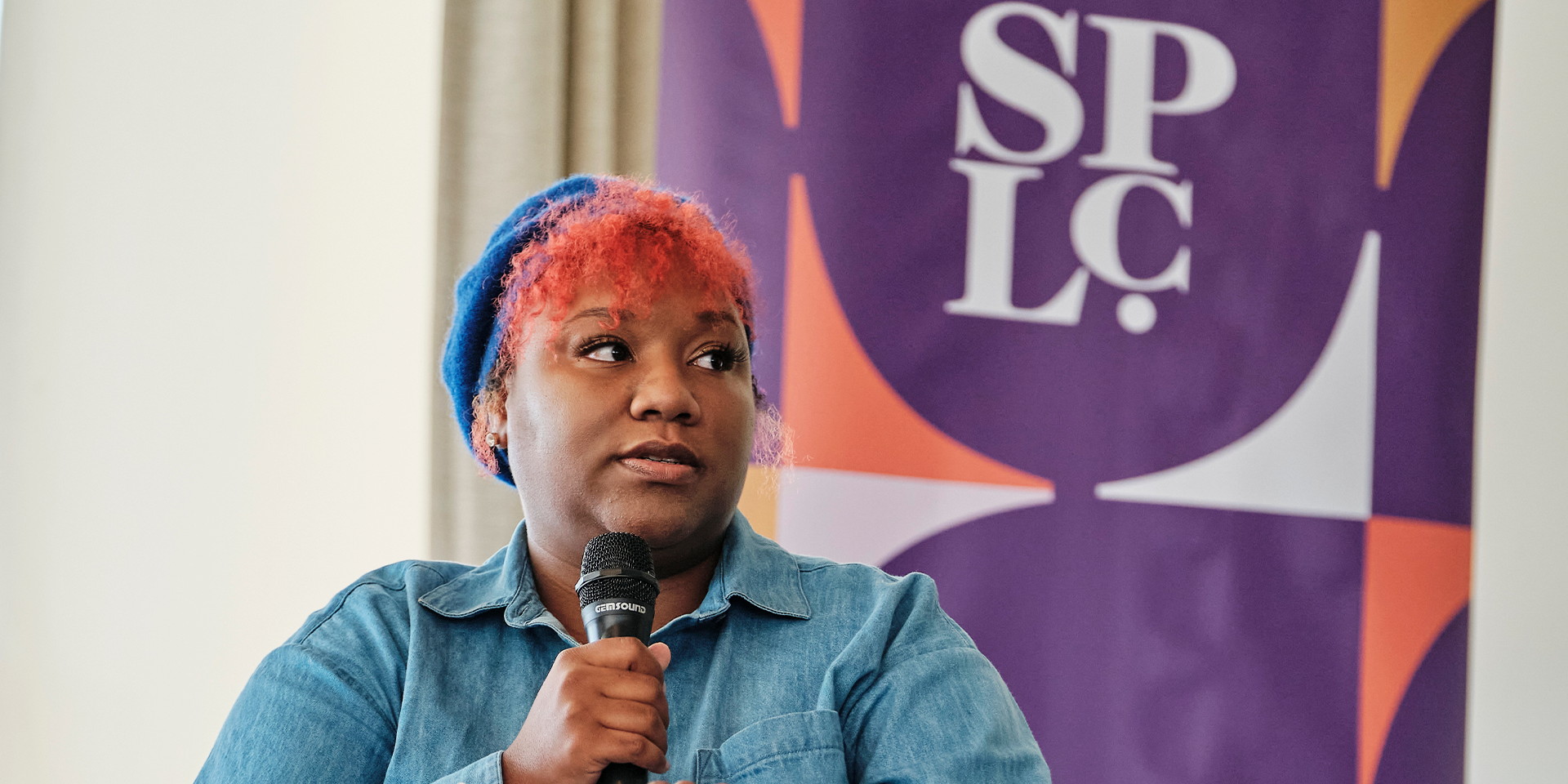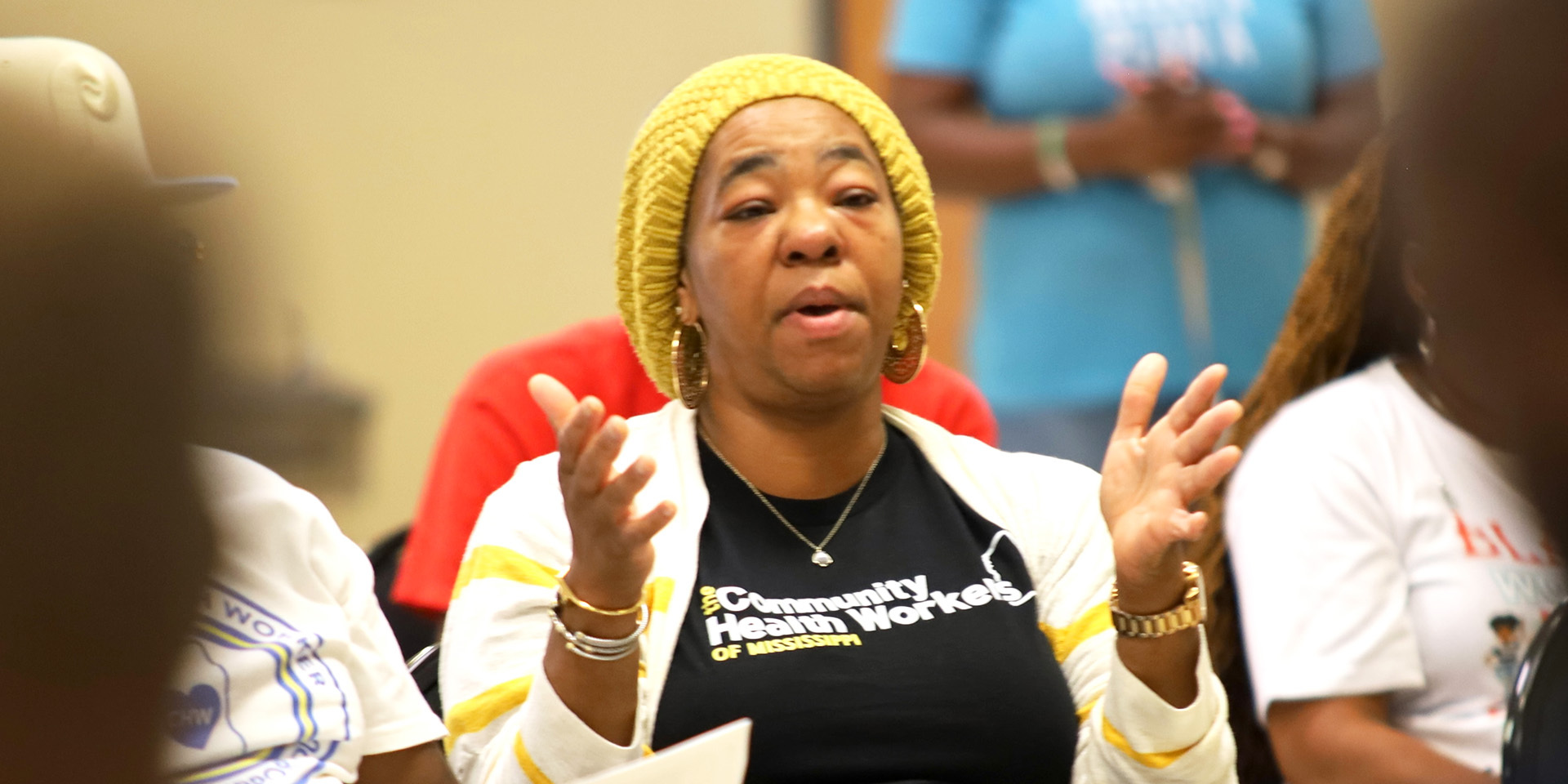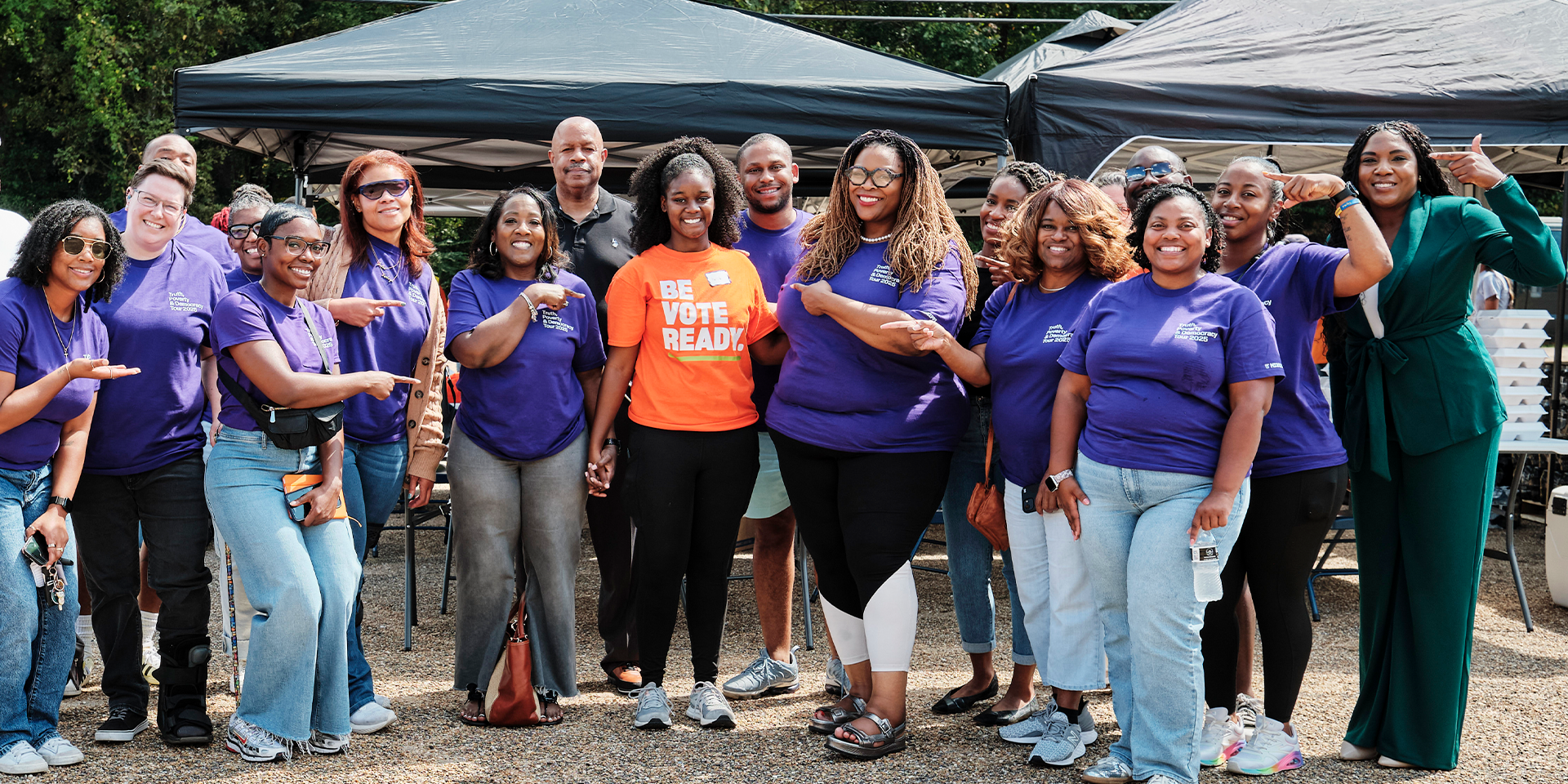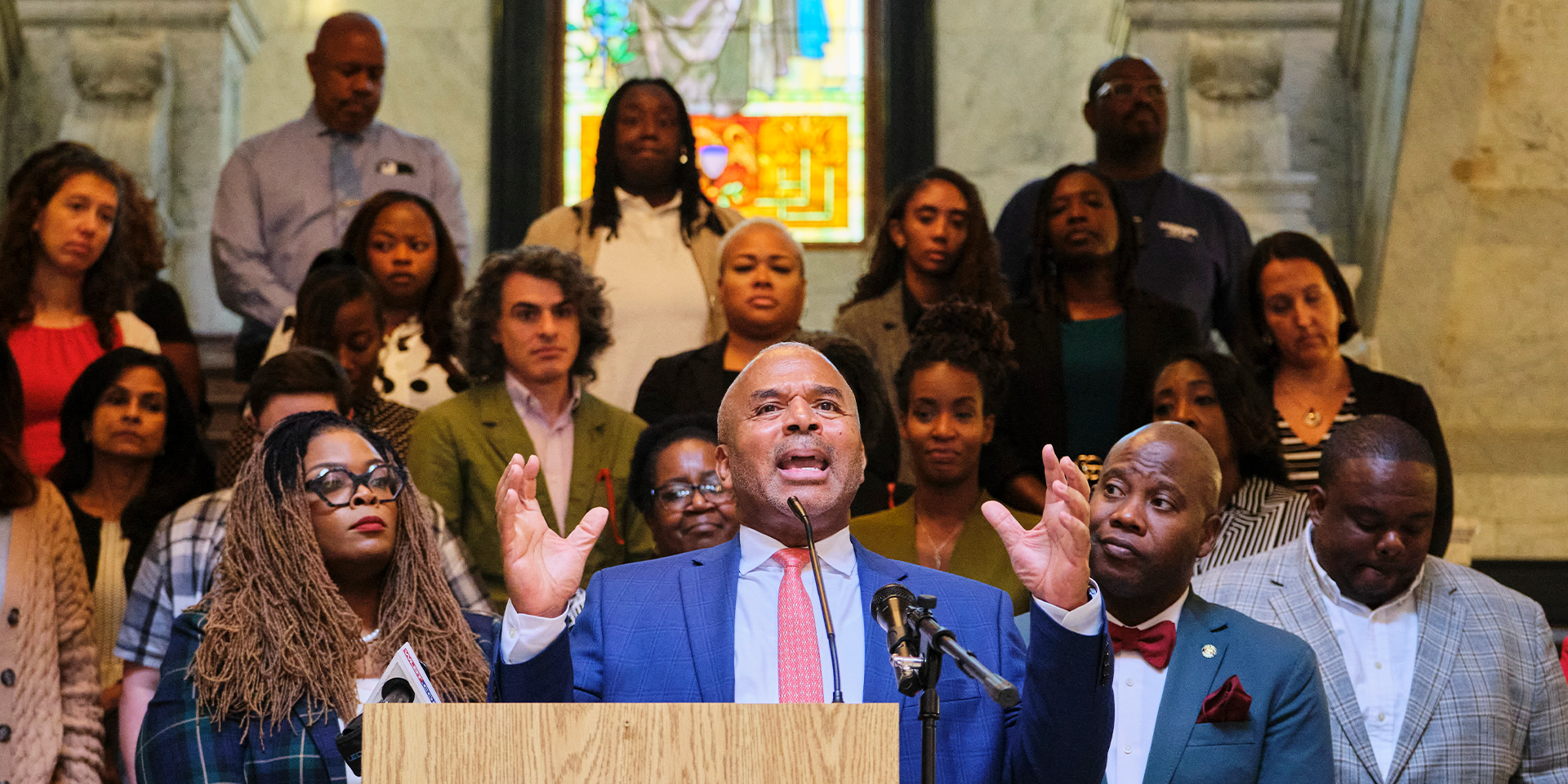The Natchez, Mississippi, leg of the second annual Truth, Poverty and Democracy Tour across Mississippi’s Delta region touched on the ways in which Black residents could harness the type of generational wealth that had eluded — or, in many cases, had been stripped from — their predecessors.
Sara Miller, a senior policy analyst with Hope Policy Institute, said the loss of property in the Black community over the years has eliminated a major part of that legacy wealth. It was a key point during the Oct. 2 stop of the Southern Poverty Law Center’s Mississippi tour, which was designed for community leaders, legislators and representatives from aid groups to hear about the challenges facing people who live in underserved communities.

“If you’re renting and not owning, then you’re paying that money to somebody else who owns that asset,” Miller said. “He’s going to be the one to benefit from that over time.”
Kimar Cain, a community organizer with the SPLC’s Mississippi state office and a Natchez native, said the town’s racial divide didn’t fall along a geographic feature, like a railroad track, but in the distribution of wealth. Some of the attendees answered that the lack of economic options in the region made it difficult for graduates to remain after they secured their degrees, even if they have the benefit of higher education.
“I feel like we have more opportunities than any other kids in the community because we come to school, we’re taking college classes early and then, when we graduate, we already have associate degrees,” said Layla Lucas, a high school student taking courses at Copiah-Lincoln Community College instead of a traditional secondary school curriculum. “That makes it easier for us when we get to college, because we only have to do two more years. So, we have more opportunities than anybody else in the field.”
But using that advantage to create ongoing, transferable wealth can be a challenge that has historically been denied to members of the Black community.
“That gives you an opportunity to then be able to create some wealth for yourself,” said Jarita Frazier-King, executive director of the Women’s Business Center at Alcorn State University. “I know some of you say you are going to leave Natchez when you graduate, but make sure that you hold on to big mama’s house. Make sure that you keep up with the insurance on big mama’s house, because that’s going to be some generational wealth for you.”
She pointed to the constant wave of real estate agent signs that popped up and then disappeared in their neighborhoods as an indicator of the wealth transfer out of the community.
“We see a lot of ‘for sale’ signs, but sometimes we don’t see them there long because we have people outside of our community that see the value,” Frazier-King said. “They come in and buy up property. You guys can have some of that same generational wealth if you make sure that you stay engaged, like you’re doing, and keep up with that generational wealth for yourself.”
Image at top: The Rev. Tracy Collins leads a tour of downtown Natchez, Mississippi, during a stop on the Southern Poverty Law Center’s 2025 Truth, Poverty and Democracy Tour. (Credit: Dwayne Fatherree)



